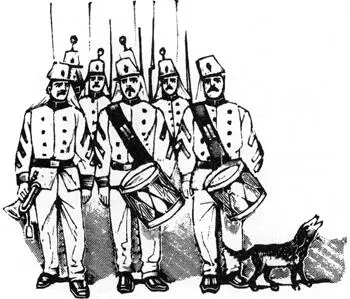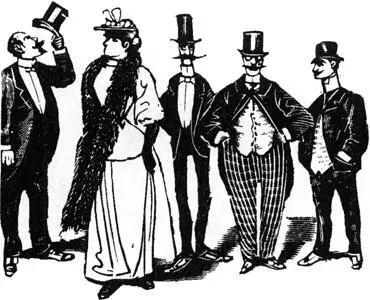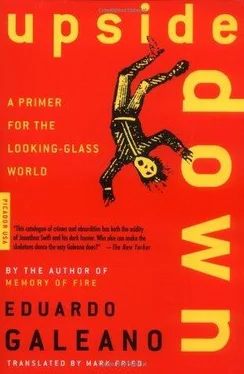



EXTERMINATORS OF THE PLANET

Crimes against people, crimes against nature: the impunity enjoyed by the masters of war is shared by their twins, the voracious masters of industry, who eat nature on earth and, in the heavens, swallow the ozone layer. The most successful companies in the world are the ones that do the most to murder it; the countries that decide the planet’s fate are the same ones that do their best to annihilate it.
NO-RETURN PLANET
Effluence, affluence: inundating the world and the air it breathes are floods of crud and torrents of words — expert reports, speeches, government declarations, solemn international accords that no one observes, and other expressions of official concern for the environment. The language of power diverts blame from consumer society and from those who impose consumerism in the name of development. The large corporations who, in the name of freedom, make the planet sick and then sell it medicine and consolation can do what they please, while environmental experts, who reproduce like rabbits, wrap all problems in the bubble-wrap of ambiguity. The state of the world’s health is disgusting, and official rhetoric extrapolates in order to absolve: “We are all responsible” is the lie technocrats offer and politicians repeat, meaning no one is responsible. Official palaver exhorts “the sacrifice of all,” meaning screw those who always get screwed.
All of humanity pays the price for the ruin of the earth, the befouling of the air, the poisoning of the waters, the disruption of the climate, and the degradation of the earthly goods that nature bestows. But hidden underneath the cosmetic words, statistics confess and little numbers betray the truth: one-quarter of humanity commits three-quarters of the crimes against nature. Each inhabitant of the North consumes ten times as much energy, nineteen times as much aluminum, fourteen times as much paper, and thirteen times as much iron and steel as someone in the South. The average North American puts twenty-two times as much carbon into the air as an Indian and thirteen times as much as a Brazilian. It may be called “global suicide,” but this daily act of murder is being perpetrated by the most prosperous members of the human species, who live in rich countries or imagine they do, members of countries and social classes who find their identity in ostentation and waste. The widespread adoption of such models of consumption faces a small impediment: it would take ten planets the size of this one for poor countries to consume as much as rich ones do, according to the well-documented Bruntland Report, presented to the World Commission on Environment and Development in 1987.
The giants of oil, the sorcerer’s apprentices of nuclear energy and biotechnology, the large corporations that make weaponry, steel, aluminum, automobiles, pesticides, plastics, and a thousand other products like to shed crocodile tears over the suffering of nature. These companies, the most devastating on the planet, figure among those that make the most money. They also spend the most money — on advertising that magically turns pollution into philanthropy and on high-minded favors for politicians who decide the fates of countries or the world. Explaining why the United States refused to sign the Convention on Biodiversity at the Rio summit in 1992, President George Bush was unequivocal: “It is important to protect our rights, our business rights.”
The Language of International Experts
In the context of evaluating the contributions made by reframing the projects currently under way, we will focus our analysis on three fundamental questions: the first, the second and the third. As can be deduced from the experience of those developing countries where some of the measures which are the object of our study have been put into practice, the first question has many points of coincidence with the third, and one or another of these appear to be intrinsically linked to the second, such that it could well be argued that the three questions are related to one another.
The first …
Whether he signed or not mattered little, because such international accords are worth less than a bounced check. The Rio summit was called to keep the planet from dying. But, with the exception of Germany (and even it acted only halfheartedly), none of the great powers kept the agreements they signed, for fear that their companies would lose their competitive edge and their governing politicians would lose elections. And the great power that complied least was precisely the most powerful of all, whose essential objectives were stated clearly in President Bush’s confession.
The colossi of the chemical, oil, and automobile industries, so central to the theme of the Rio summit, paid a large portion of the cost of the conference. You can say anything you like about Al Capone, but he was a gentleman: good old Al always sent flowers to the funerals of his victims.
Five years later, the United Nations called another meeting to evaluate the impact of the Rio summit. In those five short years the planet’s skin of vegetation had been stripped of its tropical flora over an area two and a half times the size of Italy, and fertile lands the size of Germany had turned arid. A total of 250,000 species of animals and plants had become extinct; the atmosphere was more polluted than ever; 1.3 billion people were without proper homes or food, and 25,000 were dying each day from drinking water contaminated by chemical poisons or industrial waste. Not long before, twenty-five hundred scientists from a broad array of countries, also called together by the United Nations, concluded that in the near future the planet will face the greatest climate changes in the last ten thousand years.
Morgan
They don’t have peg legs or eye patches, but bio-pirates are roaming the Amazon jungle and other tropical lands. They force their way on board, snatch the seeds, patent them, and turn them into successful commercial products.
Four hundred indigenous villages of the Amazon recently decried the seizure of a sacred plant, ayahuasca, “our equivalent,” they said, “of the Christian host.” At the U.S. Patent Office, International Plant Medicine Corporation patented ayahuasca for making psychiatric and cardiovascular medicine. From now on, ayahuasca is private property.
Those who suffer most from this punishment are, as usual, the poor — poor people and poor countries condemned to expiate the sins of others. Economist Lawrence Summers, with a doctorate from Harvard and a post high in the World Bank hierarchy, bore witness to this fact at the end of 1991. In an internal document leaked by mistake, Summers proposed that the World Bank encourage the migration of dirty industries and toxic waste “toward less developed countries,” for reasons of economic logic that had to do with “the comparative advantages” those countries enjoy. Those advantages turned out to be three: pitiful wages, vast expanses where there’s still lots of room for polluting, and the low incidence of cancer among the poor, who have a habit of dying young from other causes.
Читать дальше
















